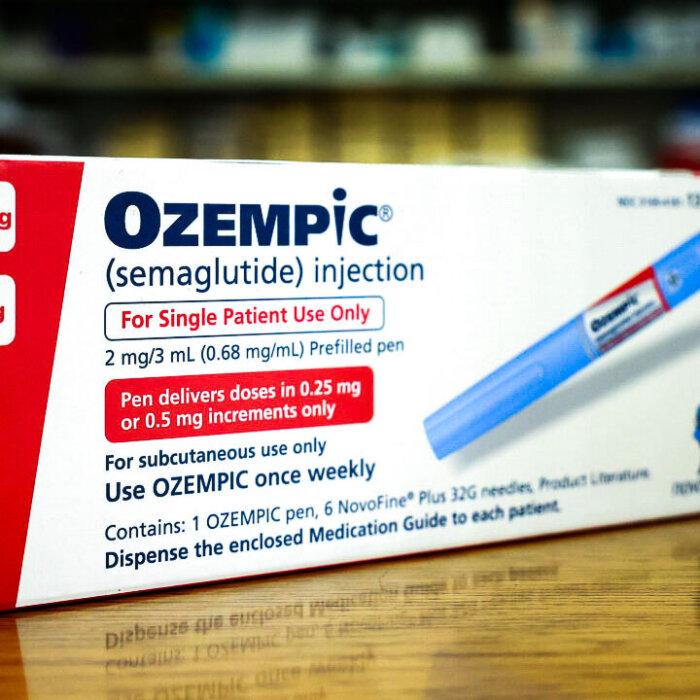Dr. Gabrielle Lyon, a physician specializing in muscle-centric medicine, offers a different perspective.
The Ozempic Issue
The issue of muscle mass versus fat becomes particularly critical as the world turns to a new class of drugs to aid in weight loss.“GLP-1 agonists have been celebrated for their potency in reducing body mass, but lean mass accounts for an alarming proportion of this weight loss,” Dr. Attia wrote.
Dr. Attia also said that while GLP-1 agonists such as Ozempic can offer health benefits for obese individuals, they come with risks, especially for those with minimal weight to lose. He added that even obese patients can’t always afford significant lean mass loss, particularly those with sarcopenic obesity—a condition marked by excess fat and low skeletal muscle, common in older adults.
“Further reductions in lean mass among those with too little to begin with could pose a greater threat to health and longevity than the presence of excess fat,” Dr. Attia warned.
The amount of muscle lost during a caloric deficit depends on factors such as protein intake, resistance training, hormonal status, sleep quality, and many other variables, Dr. Bakri told The Epoch Times in an email.
“Muscle loss is the Achilles’s heel of most conventional weight loss efforts, including GLP-1 agonists, that virtually guarantees that weight is regained as fat,” Dr. William Davis, cardiologist and author of the book “Super Gut,” told The Epoch Times.
3 Ways Muscle Aids Weight Management
Muscle plays a key role in managing our weight because it enhances our metabolism, using calories more effectively; regulates glucose, so we are less likely to store calories as fat; and balances hormones, to keep us in better overall metabolic health.Muscles Enhance Metabolism
We all know someone who seems to be able to eat anything without gaining weight, often attributed to having a “great metabolism.” But what does that really mean?Metabolism encompasses all the biochemical processes that convert food into energy for essential functions such as cell growth, repair, and maintenance. The total energy used for these functions is known as the metabolic rate.
Lean muscle mass affects the body’s basal metabolic rate (BMR)—the calories burned at rest. Muscle tissue is metabolically active and requires more energy to maintain than fat tissue. Thus, more muscle means more calories burned at rest.
In her book, “Forever Strong,” Dr. Gabrielle Lyon expands on this idea. “You might have heard that muscle plays the biggest role in using calories and elevating our metabolism while we’re at rest. But don’t be fooled,” she wrote.
While muscle does contribute to calorie burning, Dr. Lyon clarifies that “each pound of muscle burns only about ten calories at rest.”
“The metabolic power is this: Well-trained muscle tissue is more efficient and effective at utilizing calories,” she said.
Well-trained muscle refers to muscle tissue that has been conditioned and strengthened through regular exercise. It enhances metabolism by using energy for protein turnover, aiding the body in maintaining homeostasis.
Muscles Regulate Glucose
Muscles are crucial in regulating glucose levels. During exercise, muscles use glucose for energy, lowering blood sugar levels. Excess glucose can convert to fat, leading to weight gain. Thus, muscles help prevent weight gain by effectively regulating glucose, aiding in weight loss. This is especially important for those with insulin resistance or diabetes, as it helps improve glucose control without relying solely on insulin.Muscles Balance Hormones
Muscles aren’t just for movement—they also play a significant role in balancing hormones.Muscles produce and secrete hundreds of hormone-like substances that influence various physiological processes, including hormone regulation. These myokines help regulate the release of hormones such as insulin, aiding in metabolic stability.
Muscles also produce hormones such as irisin, which converts white fat to brown fat, enhancing energy expenditure.
Muscle As Medicine
“We need to change the paradigm of medicine and think about muscle as medicine,” Dr. Lyon said in her Ted Talk.In her book, she recommends resistance training and a “protein-forward” diet to combat muscle loss. Resistance training promotes muscle growth and maintenance, while protein supplies the building blocks for muscle repair and growth.
Dr. Lyon’s advocacy for muscle as medicine urges a rethinking of traditional weight management strategies. Preserving and building muscle supports better health and enhances weight loss interventions. As people turn to weight loss drugs, surgery, and other methods, addressing muscle loss is crucial for maintaining overall health and achieving long-term success.












